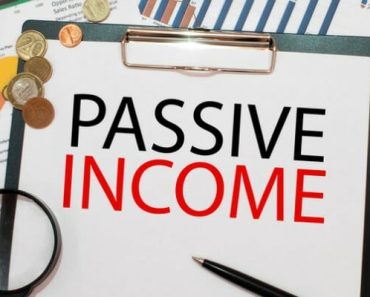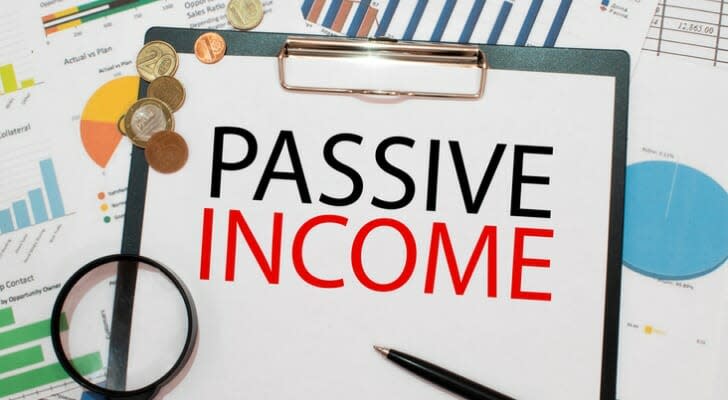[ad_1]
If you’re looking to receive passive income with your investments, there are many ways to do it. While your best choice will depend on certain factors, such as your age and risk tolerance, there are many ways to invest $20,000. The right investment options for you are going to depend on what your goals are for the long haul. You can also work with a financial advisor to help you pick your investment options.
Invest in a Retirement Account
Investing in a retirement account is often one of your best options, especially if you haven’t invested much yet. Retirement accounts, like a 401(k) or individual retirement account (IRA), have tax advantages as an incentive to stash your money in them. That means you get to keep more of your money.
How to prioritize different retirement accounts depends on your situation. Some employers will match your contributions, so it makes sense to at least invest up to the match. On the other hand, IRAs tend to give you more control over your investments. Your situation and investment goals will determine how you should prioritize different retirement accounts. However, these accounts can provide great passive income down the road.
Pay off Debt
You may not consider paying off debt as an investment, but it can be a great move. If you have a lot of debt and receive $20,000 in a lump sum, wiping out your debt could provide the best return. For example, you might have a lot of credit card debt with 15-20% APR. Unfortunately, even the savviest of investors can’t earn returns that high – at least not consistently. Paying off your debt can set you on the right path; not only will it put you in a better position today, but it means you’ll have less interest to pay going forward.
If you’re ready to be matched with local advisors that can help you achieve your financial goals, get started now.
Open a High-Yield Savings Account
If you don’t already have an emergency fund, now is the perfect opportunity to change that. You can use a high-yield savings account to earn passive income on the money in your emergency fund. Of course, having an emergency fund will help ensure you have cash when the unexpected happens. But having cash on hand has the added benefit of allowing you to avoid high-interest debt when these things happen. For example, you can avoid putting big expenses on a credit card, thus accruing more of that debt we discussed earlier.
Invest Using a Brokerage Account
Brokerage accounts are investment accounts you open with a broker, such as an online broker. These brokers often have minimal fees. They can also offer even more freedom than an IRA as they have no early withdrawal penalties. But they also lack IRAs’ tax advantages, so brokerage accounts tend to be best for investing money you’ll need before age 59 ½. Nevertheless, having diversity in your tax strategy can be beneficial. You can withdraw money slowly as your investments grow, providing you with some passive income.
Invest in Dividend Stocks
If you specifically want passive income, you might consider dividend stocks. Dividend stocks often pay quarterly, usually with a yield in the range of 2% to 5%. Stocks that pay dividends tend to be well-known, financially stable companies, so the risk is typically low compared to other stocks. However, you might find a similar (or better) rate with a high-yield savings account when interest rates are high.
Invest in Real Estate
Real estate is one of the oldest forms of investment and can still provide strong returns today. It can also be a great source of passive income. You can’t buy very many houses for $20,000, but that doesn’t mean you can’t invest in real estate. There are many ways to buy shares of real estate today. For example, you can invest in a real estate ETF, a real estate investment trust (REIT) or you can try real estate crowdfunding. You can get started with $1 or perhaps even less in some cases. If real estate is your preferred investment, $20,000 can go a long way in today’s economy.
The Bottom Line
Generally, creating significant passive income takes a lot of time, a lot of money or both. $20,000 won’t create enough passive income to sustain you, but it can give you a great head start. You might choose to pay off debt, open a high-yield savings account or start investing. No best strategy works for everyone; getting started is most important. That way, you start earning passive income with your $20,000 as soon as possible.
Tips for Investing
-
Financial advisors help investors analyze various investment options and can help create a plan of action to meet their goals. Before investing in any passive income investments, consider talking with an advisor to understand how it fits within your portfolio. Finding a qualified financial advisor doesn’t have to be hard. SmartAsset’s free tool matches you with up to three vetted financial advisors who serve your area, and you can interview your advisor matches at no cost to decide which one is right for you. If you’re ready to find an advisor who can help you achieve your financial goals, get started now.
-
When investing your money, it is important to diversify your assets among many different types of stocks and bonds. This helps you gain exposure to multiple sectors of the market and benefit from their growth. Our asset allocation calculator helps you select a profile that’s right for you based on your answers to simple questions.
Photo credit: ©iStock.com/Zolak, ©iStock.com/fizkes, ©iStock.com/MARHARYTA MARKO
The post How to Invest $20,000 for Passive Income appeared first on SmartAsset Blog.
[ad_2]
Source link



